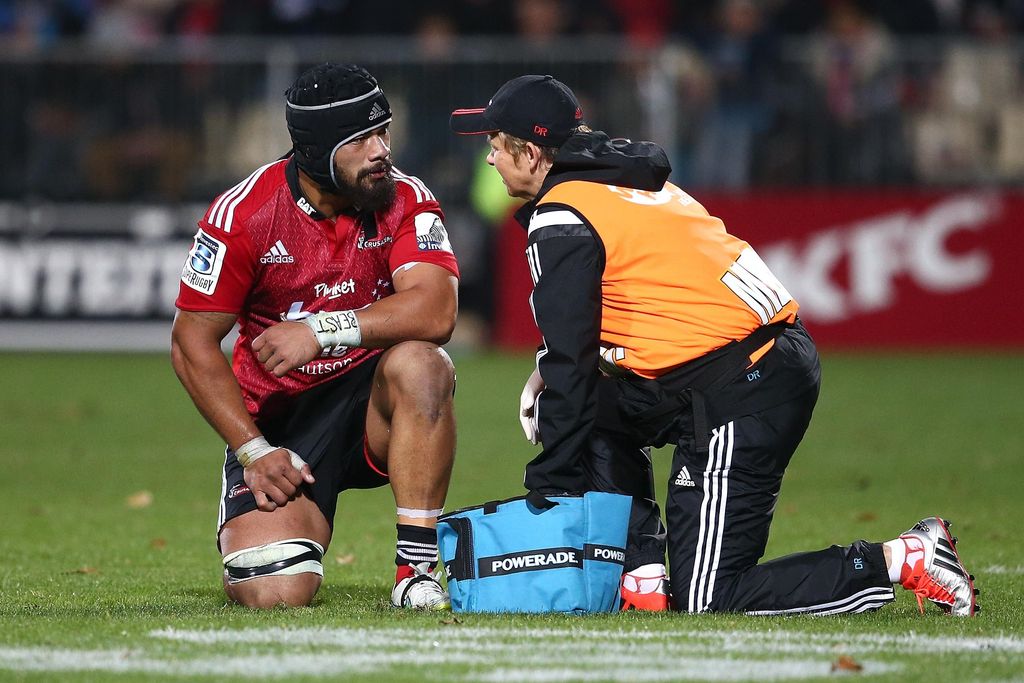Deb Robinson, chair of World Rugby’s anti-doping advisory committee, has spoken about the importance of education as the World Anti-Doping Agency (WADA) marks Play True Day.
Launched in 2014, Play True Day takes place every April and is intended to raise awareness among athletes, the sporting public and others about the importance of keeping sport clean.
Robinson referenced Keep Rugby Clean, World Rugby’s anti-doping education and awareness campaign which was showcased during Rugby World Cup 2019, as she highlighted the need to reach younger generations to help drive long-term behaviour change.
Our team in Cape Town, South Africa created this super fun video for #PlayTrueDay on April 9. Whether you sing or jam about it, or simply share a photo or video, tell us what #PlayTrue means to you! 🎤🥁#KeepCalm #HaveFun #CleanSport #AntiDoping pic.twitter.com/S1c9vVTJbg
— WADA (@wada_ama) April 9, 2021
“What is fantastic is [these campaigns are] noted by children and young adolescents and therefore the message is ingrained in them from a young age,” Robinson said.
“If they've already been educated coming into [adolescent rugby], you're going to have much, much less likelihood of players wanting to consider a shortcut.
“We know across the world that educating our young people is the best way of changing behaviours, and I think rugby does that really well and it is a nice way for us to educate alongside WADA.
“And so, really, we're doing a really nice job of spreading the word for WADA amongst our sport.”
A visible and clear message
As part of the Keep Rugby Clean campaign, Keep Rugby Clean promotional days are held at World Rugby events and the world’s best players wear pink t-shirts during their warm-up. Robinson believes it cuts through in part because they are so distinctive.
“It's very visible by the colour of the shirt, very visible by the message,” she said. “The players have to be commended because they just totally get it.
“They just go, ‘this is what we're doing today’. In my experience it's not hard to have your players wear the shirt.
“I have this dream that those shirts will end up filtering away and… they get given to somebody and somebody else gets given [one by] someone else and they wear them, and you certainly do see them worn from time to time.
“So, I think that visibility is important because rugby is all about the watching. So, I don't think we should underestimate the message that goes out to the wider rugby world.”
Robinson was appointed chair of the anti-doping advisory committee in October last year, and says that its role is to oversee World Rugby’s anti-doping programme, while providing direction and support to anti-doping amongst the game’s wider community.

“There's a certain amount of testing you have to do to act as a deterrent,” she said.
“That's really important because clean sports are important to be able to attract young players and have families and parents happy that their children are playing the sport, and also for our elite athletes to know that they're playing on a level playing field.”
Feeling comfortable on Council
Robinson’s relationship with rugby began 20 years ago, when she took over from her practice colleague, Rob Campbell as team doctor for Canterbury and the Crusaders.
She was part of the All Blacks backroom team at both RWC 2007 and RWC 2011, while she worked at RWC 2017 with the Black Ferns.
In 2018, Robinson was one of 17 women elected to the World Rugby Council. She admits it has taken that time to feel completely at ease.
“It's been the perfect intro for me,” she said. “A year of getting to know how the whole thing works, a year of making sure that I was chatting to people and feeling comfortable if I wanted to say something.
“Now [I’m] involved with some committees, I feel a lot more entrenched and provide value to the group.”






